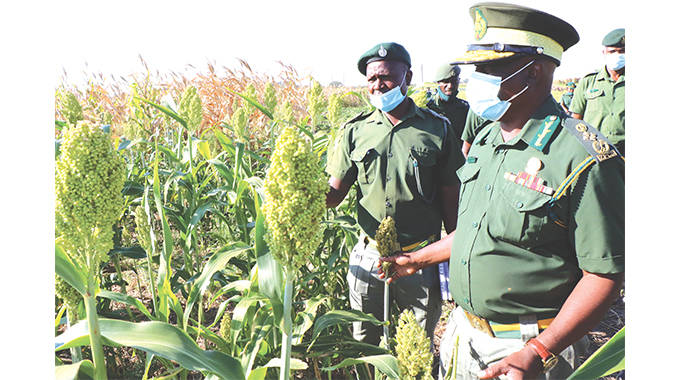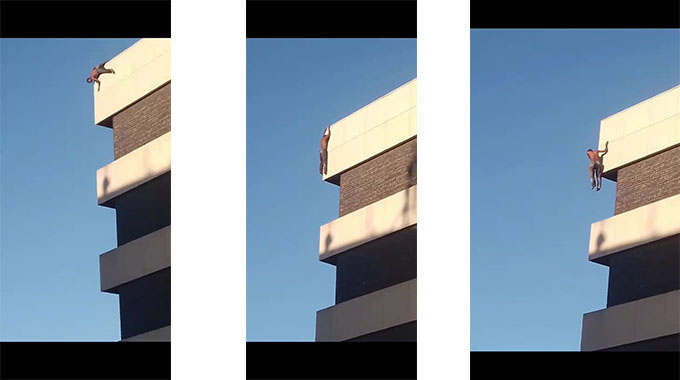Rhodesians aimed at oppressing and humiliating black offenders

Mashudu Netsianda, Senior Reporter
THE Rhodesia Prison Service was established by colonial authorities in the 19th century and was aimed at oppressing, punishing and humiliating black offenders.
According to the Zimbabwe Prisons and Correctional Service (ZPCS) website, the country’s first prison, Salisbury Prison (now Harare Central Prison) was established in 1892 to deal with natives arrested during the uprisings in Mashonaland.
The second prison to be established was Bulawayo Prison (Grey Prison) following the collapse of the Ndebele State in 1894.
This followed the construction of other penal centres throughout the country between 1900 to 1910.
These included Chinhoyi, Chivhu, Gwanda, Gweru, Hwange, Kwekwe, Marondera, Masvingo, Murewa, Mutare, Mutoko, Rusape and Tsholotsho.
However, the focus shifted after independence when the Zimbabwe Prisons Service (ZPS) was formed and later rebranded to ZPCS in terms of Section 227 of the Constitution of Zimbabwe Amendment (No 20) Act 2013.
ZPCS’s mandate is to protect society from criminal elements through the incarceration and rehabilitation of convicted persons and others who are lawfully required to be detained, and their reintegration into society.
The main objective of adopting the name ZPCS is in line with the reinforcement and the rehabilitation of the offender including the reflection of the human rights element as enshrined in the Constitution.
ZPCS Commissioner-General Moses Chihobvu said Government took a lead in showing the correct attitude towards the prison system when it changed the name from Zimbabwe Prison Services (ZPS) to ZPCS.
“That attitude should reflect in the way our prisons are managed. The prisons must be treated as correctional facilities that should prioritise the reformation and rehabilitation of the inmates. It should be realised that these inmates will have to re-join society as reformed citizens,” he said.
“On the contrary, the harsh conditions in the correctional facilities are hardening inmates into hardcore criminals. This explains why some of them are quick to return to jail after release.”
Unlike during the Rhodesia era, the inmates are now treated with dignity.

Zimbabwe Prisons and Correctional Service (ZPCS) Commissioner- General Moses Chihobvu (right) accompanied by Assistant Principal Correctional Officer (APCO) Emmanuel Masendeke inspects sorghum crop at Anju Farm Prison in Umguza
Comm-Gen Chihobvu said since the country’s attainment of Independence in 1980, there has been a massive transformation of ZPCS into rehabilitation centres.
“There has been a transformation of prisons since 1980. We have moved away from the closed prison to the open prison. We have also introduced new things in prisons whereby we are saying the inmates have to be taught with the intention to empower them and this is what we are doing. In the past there was nothing of that sort,” he said.
Comm-Gen Chihobvu said they have created an environment allowing inmates to transform into productive citizens.
“The ZPCS has scaled up offender rehabilitation by innovatively introducing various rehabilitation programmes and activities whose major four components are vocational skills training and academic education, moral rehabilitation, social rehabilitation, which involves counselling and psychotherapy and sports and recreation,” said Comm-Gen Chihobvu.
“These rehabilitation programmes are being conducted in all prisons countrywide so that inmates shun their elements of crime and live as law-abiding citizens.”
These programmes also assist in terms of manpower development at the national scale in that a lot of inmates upon completion of their various training trades are issued with certificates and journeyman classes making it possible for them to productively venture into and contribute towards the country’s different economic trades.
Comm-Gen Chihobvu said they have various prison workshops vocational training centres across the country where inmates are engaged in various skills training programmes.
“At Harare Central Prison, we have a vocational training centre where inmates are engaged in various skills training programmes and plans are underway to establish a similar centre at Khami Prison workshop.
“The use of inmates in production is also in line with the Mandela Rules, as prison administrators are required to make sure that the period of incarceration is used to ensure that, as far as possible, the re-integration of offenders into society upon release can lead a law-abiding and self-supporting life,” he said.
Comm-Gen Chihobvu said they have also introduced the Open Prison System.
At present, the country only has Connemara Open Prison for men just outside Gweru.
Inmates at an open prison are allowed to go home and spend time with their family members and relatives. Prisoners serve their sentence with minimal supervision and perimeter security and are not locked up in prison cells.
They are also given opportunities to engage in various rehabilitation activities and programmes in a less restrictive environment.
Comm-Gen Chihobvu said they will soon open the country’s first-ever female open prison in Marondera as ZPCS keeps abreast with changes in global trends in the rehabilitation of prisoners.
“We also have established open prisons and right now we have an open prison for female prisoners in Marondera which is about to be completed and likely to be opened at the end of April. We already have Connemara Prison for males and these prisons are important in terms of reintegrating prisoners to society,” he said.
After Independence, Government managed to build six new prison facilities at Khami Prisons in Bulawayo, Kadoma, Mutare and Chipinge.
There are now 46 prison and correctional facilities in the country.
Comm-Gen Chihobvu said they have also managed to commercialise their facilities through introducing income-generating projects thus reducing the prisons’ reliance on Treasury for their day-to-day running.
Some of the notable projects include Anju Prison Farm, which has become a farming champion in Matabeleland North, while in Hwange ZPCS is involved brick moulding.
Khami Prisons, on the outskirts of Bulawayo, is doing wonders with agricultural produce that is feeding inmates and even selling surplus and donating food to health institutions.
Other income-generation projects for the Matabeleland North Province prison institutions include the Binga Kapenta Fishing Project and the Lupane Aquaculture projects which were launched in 2017 and 2018 respectively.
Apart from generating income within prison establishments, these projects offer alternative nutritional requirements to both the staff and inmate population within the province’s prisons
“Although Government doesn’t have enough resources to equip our prisons, in terms of production, we have managed to commercialise our agriculture activities and partnered companies from different sectors as part of rehabilitating our inmates,” said Comm-Gen Chihobvu. — @mashnets










Comments